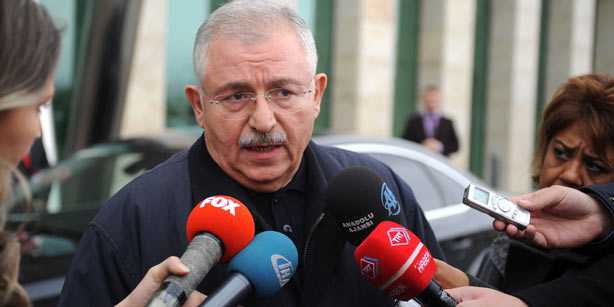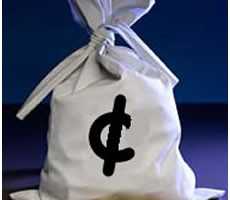LONDON — Turkey’s split personality has often left it caught between two worlds. Some European nations have vocally opposed the country’s attempts to build closer ties with the West. And many of its Middle Eastern neighbors have been wary of the avidly secular state.
Now, the country’s identity is an advantage for deal makers. Turkey doesn’t have the economic baggage of its European neighbors, which are dealing with the sovereign debt crisis. With a relatively stable government, it has also angled for a more prominent role in the Middle East, as countries like Syria and Libya continue to face turmoil.
The combination of economic growth and political stability has attracted cash-rich companies looking to make acquisitions. So far this year, deal volume has totaled $10.6 billion, ahead of European countries like Austria, Portugal and the Czech Republic. In 2010, mergers and acquisitions reached $25.6 billion, up from $1.1 billion a decade ago.
“The economic backdrop in Turkey is better than in other European economies and has been rebounding faster,” Emre Yildirim, an executive director at JPMorgan Chase who focuses on Turkish mergers and acquisitions. “It’s a large country that’s growing quickly, so it makes strategic sense for companies to take a look.”
The country’s rapid growth has been a critical factor for foreign buyers. Turkey’s gross domestic product is on track to increase by 8 percent this year.
It also has a growing middle class, an attractive characteristic to Western consumer product companies. The local population totals more than 73 million, almost the same size as Europe’s largest economy, Germany. And the country’s G.D.P per capita has more than doubled to $10,094 in the last decade, according to the World Bank
Turkey is hardly immune from the usual growing pains associated with emerging markets. Inflation hovers near 10 percent, affecting the country’s overall competitiveness. Reliance on debt-ridden Europe may also start to pinch. Roughly 50 percent of Turkish exports are bought by countries in the European Union, according to the Organization for Economic Cooperation and Development, a policy research organization based in Paris.
Still, Turkey “remains one of the good performers,” said Rauf Gönenç, chief economist for Turkey at the O.E.C.D. While growth is expected to slip to 3 percent next year, the country outpaces its European counterparts, many of which are heading for recession in 2012.
From a deal-making perspective, the region’s troubles may help spur activity, notably in the financial services sector. Over the last decade, European banks, including the National Bank of Greece and UniCredit of Italy, acquired local institutions as part of their debt-fueled expansion. Now, many of Europe’s banks, which are facing losses linked to their sovereign bond exposure, want to sell assets outside their local markets to meet new capital requirements.
One target could be DenizBank, the Turkish subsidiary of Dexia, the Franco-Belgian bank that received a $5.4 billion government bailout in October. As part of Dexia’s nationalization, the European bank has agreed to be broken up. Analysts say a number of relatively strong international players, including HSBC, are circling the local operations in Turkey.
“International banks may look to make disposals and sell profitable Turkish assets as part of their global deleveraging,” said Mr. Yildirim of JPMorgan.
Foreign companies are also trying to capitalize on the growing consumer demand.
Earlier this year, Diageo started moving to expand into the emerging markets, aiming to increase its revenue from such economies to 50 percent by 2015. Turkey was at the top of the list. Each year, more than one million people reach the country’s legal drinking age. And despite the country’s large Muslim population, local authorities encouraged foreign investment, said Andrew Morgan, president of Diageo’s European operations.
“Turkey has attractive G.D.P growth, is politically stable and has a big population,” Mr. Morgan said. “It’s a very important market for us.”
In August, Diageo bought Mey Içki, Turkey’s largest spirits company, from the private equity firm TPG Capital for $2.1 billion. The local business has more than an 80 percent market share in the local spirit Raki. It also operates roughly 50,000 outlets across Turkey that Diageo now uses to sell its international brands, such as Johnnie Walker and Smirnoff.
Other Western firms also are tapping into the local consumer market. In November, the brewer SABMiller agreed to buy a 24 percent stake in the Turkish beverage company Anadolu Efes in a deal worth $1.9 billion. To take advantage of rising domestic and international energy prices, the British investment firm Vallares, founded by Tony Hayward, the former chief executive of BP, bought the Turkish oil and gas exploration company Genel Energy for $2.1 billion.
Turkey’s renewed push to privatize state-owned industries has attracted international attention, too. As it has liberalized over the last 20 years, politicians have sold to the private sector stakes in much of Turkey’s energy and telecom industries. To further reduce the financial burden on state coffers, other government-backed businesses, like Turkish Airlines, which is 49 percent owned by the state, could soon be up for sale.
“Privatizations will include infrastructure, financial and energy assets,” said Richard Evans, a partner at the law firm Allen & Overy, which opened an office in Istanbul in December to capitalize on the growing mergers and acquisitions activity.
“Right now, Turkey is a much more attractive place to do business than Greece or Spain,” Mr. Evans said.





